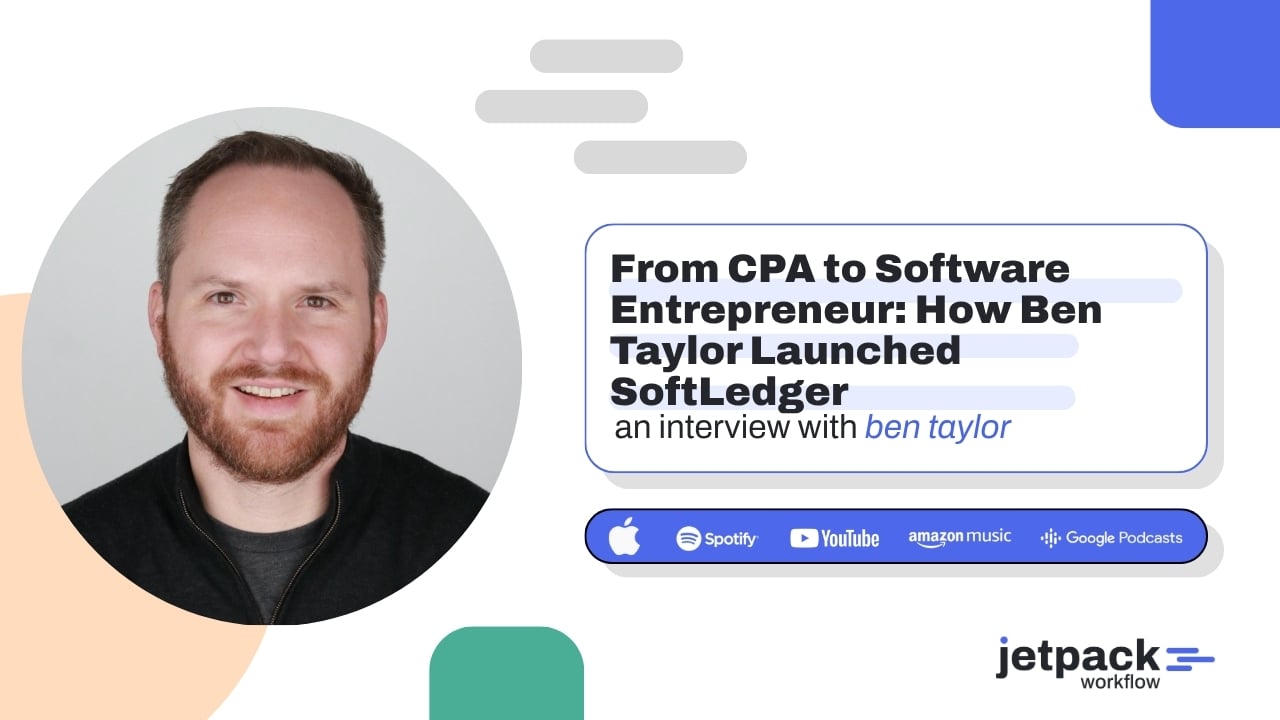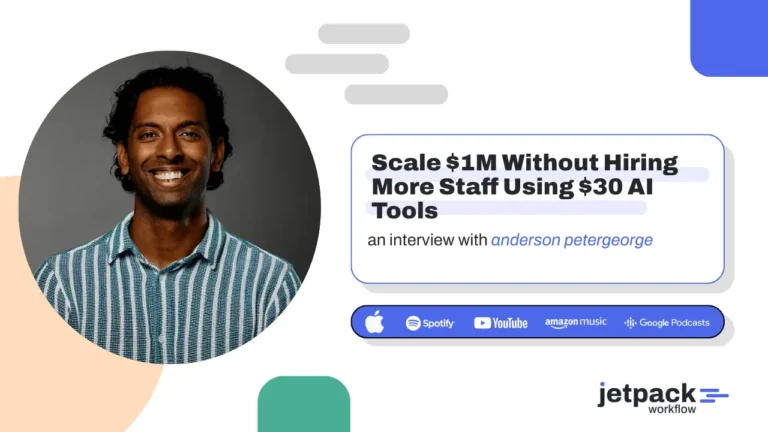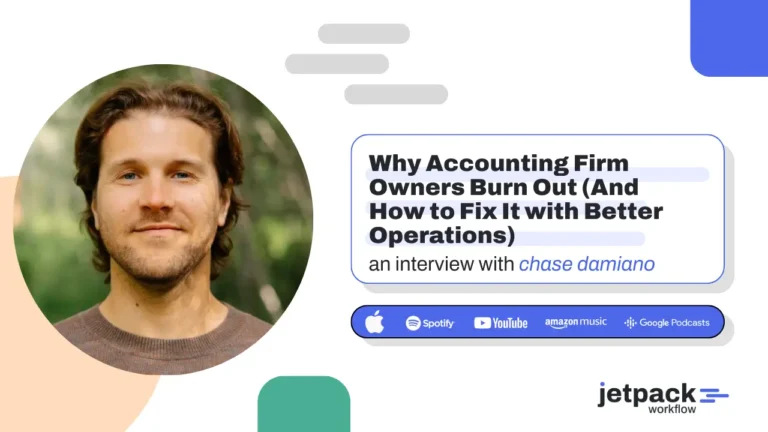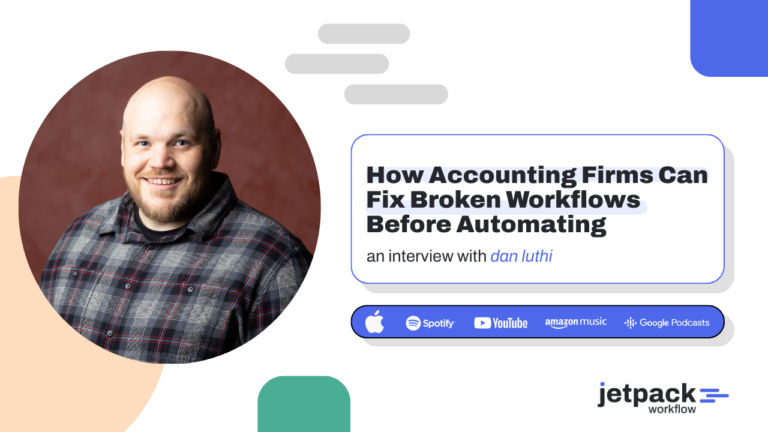From CPA to Software Entrepreneur: How Ben Taylor Launched SoftLedger

Podcast
Summary
In this episode of Growing Your Firm, host David Cristello welcomes Ben Taylor, CEO of SoftLedger, to discuss the emerging trend of CPAs transitioning into technology entrepreneurs. With over a decade of experience as a practicing CPA, Ben shares his journey from accounting to software development, highlighting the growing interest among accountants in launching their own tech solutions. David and Ben explore examples of other industry leaders, such as Jackie Meyer and Kelly Mann, who have made similar transitions, and delve into the motivations behind this shift. This conversation offers valuable insights for ambitious accountants looking to innovate and expand their impact in the financial sector. Tune in to uncover the opportunities that lie at the intersection of accounting and technology!
Transitioning from a CPA to a software entrepreneur is becoming an increasingly common trend, as many accountants seek to address deep-rooted problems in the industry through technology. This shift is fueled by a growing recognition among accountants that traditional methods and tools often fall short in tackling the complexities and inefficiencies they encounter in their daily work.
In a recent podcast episode featuring Ben Taylor, CEO of SoftLedger, the discussion highlights how many CPAs, including Ben himself, have experienced firsthand the limitations of existing accounting software. Ben’s journey began about ten years ago while managing various areas in the accounting department of a small public company. Frustrated with the outdated and inefficient Microsoft Dynamics GP, which led to delays in financial reporting, he realized there had to be a better way to handle accounting processes. This frustration sparked the idea for SoftLedger.
The episode also emphasizes that this trend is not isolated to Ben. Many other accountants have made similar transitions, moving from traditional firm roles to developing innovative software solutions. For instance, host David Cristello mentions several individuals who have successfully made this leap, including Jackie Meyer, Kelly Mann, and Hector Garcia. These examples illustrate a broader movement within the accounting profession, where practitioners leverage their industry knowledge to create tools that address specific pain points.
Ben emphasizes that corporate accountants and firm owners often encounter “deep insidious problems” that can only be effectively solved by those who have lived through them. This unique perspective enables former CPAs to identify gaps in the market and develop solutions tailored to the needs of their peers. The podcast highlights that while the journey to building a successful software company is challenging and often lengthy, the potential for impact is significant.
Moreover, the conversation touches on the importance of collaboration and iteration in the development process. Ben and his co-founder, Jeff Ostrego, spent nearly two years moonlighting to refine their product before going full-time. This dedication to understanding the intricacies of accounting software and the needs of their target audience ultimately led to the creation of a robust platform that addresses the complexities of multi-entity accounting.
In conclusion, the trend of CPAs transitioning to software entrepreneurship reflects a growing desire within the accounting community to harness technology to solve persistent industry challenges. As more accountants recognize the potential for innovation, we can expect to see an increase in the development of tools and platforms that enhance efficiency and effectiveness in accounting practices. This evolution not only benefits accountants themselves but also paves the way for improved services for clients and businesses alike.
Transitioning from CPA to Software Entrepreneur: Insights from Ben Taylor
In the latest episode of the Growing Your Firm podcast, host David Cristello interviews Ben Taylor, the CEO of SoftLedger, who shares his journey from being a practicing CPA to launching a successful software company. This transition is becoming increasingly common among accountants, and Ben’s story provides valuable insights into the challenges and opportunities that come with this shift.
The Genesis of SoftLedger
Ben’s journey began about ten years ago while he was managing various areas in the accounting department of a small public company in Chicago. Frustrated with the limitations of Microsoft Dynamics GP, he experienced a classic epiphany: “There has to be a better way.” This realization led him to start sketching wireframes of what he envisioned as an ideal accounting solution, using nothing more than printer paper and his imagination.
The Importance of Collaboration
Recognizing the need for technical expertise, Ben reached out to his longtime friend and co-founder, Jeff Ostrego, who was working in software development. Convincing Jeff to join him took about a month and a half, during which Ben had to demonstrate the potential of his idea. This highlights a crucial aspect of launching a tech startup: the importance of having a co-founder with complementary skills.
The Moonlighting Phase
After securing Jeff’s commitment, the duo began working on SoftLedger during nights and weekends for nearly two years. This phase of moonlighting is common among entrepreneurs, allowing them to validate their ideas while maintaining financial stability through their day jobs. Ben emphasized that this period was essential for iterating on their product and refining their vision.
The Challenge of Customer Acquisition
Despite their hard work, it took until January 2018 for Ben and Jeff to land their first paying customer. This customer was a company in financial distress, which underscores the reality that early customers often come from unexpected places. The initial contract was modest, at around $300 per month, but it was a critical milestone that validated their efforts and opened the door to future sales.
The Long Road to Success
Ben’s experience illustrates that building a software company is rarely a quick journey. He noted that it took a significant amount of time—over two years—before they had a product that was ready for market. Even after launching, they faced the challenge of scaling their customer base, which required persistent outreach and a willingness to learn from failures. Ben mentioned that he sent out approximately 15,000 outbound inquiries before securing that first customer, highlighting the grind that often accompanies entrepreneurship.
Financial Struggles and Support Systems
During the early days, Ben and Jeff faced financial challenges, often working for little to no salary. They relied on understanding spouses who had stable jobs to help carry the financial burden. This aspect of their journey emphasizes the importance of having a support system when venturing into entrepreneurship, especially in the early stages when income is uncertain.
The Role of Investment
In February 2017, Ben and Jeff went full-time after securing their first investment from Mucker Capital. This funding allowed them to focus on building their product and acquiring customers without the constant stress of financial instability. Ben’s experience shows that securing investment can be a turning point for startups, providing the necessary resources to scale operations.
Conclusion
Ben Taylor’s journey from CPA to software entrepreneur is a testament to the potential for accountants to innovate within their field. His story highlights the importance of collaboration, persistence, and the willingness to adapt in the face of challenges. As more accountants consider launching their own software solutions, Ben’s insights serve as a valuable guide for navigating this complex but rewarding path.
For those interested in learning more about SoftLedger or connecting with Ben, you can visit softledger.com or reach out directly at ben@softledger.com.
Securing investment can provide the necessary resources to scale a startup, but it often comes after a lengthy period of bootstrapping and iterating on the product to meet customer needs. This journey is exemplified by Ben Taylor, CEO of SoftLedger, who transitioned from being a CPA to a software entrepreneur.
The Bootstrapping Phase
In the early stages of SoftLedger, Ben and his co-founder Jeff Ostrego spent nearly two years moonlighting while maintaining their full-time jobs. This period was characterized by a significant amount of work, as they dedicated nights and weekends to developing their product. During this time, they focused on creating wireframes and iterating on their ideas, which involved a lot of trial and error. Ben emphasized that the initial phase was about validating their concept and ensuring that the product could meet the needs of potential customers.
Despite their efforts, the path was not straightforward. They faced numerous challenges, including a lack of initial customers and the complexity of building a robust accounting platform. Ben noted that they had to conduct around 15,000 outbound inquiries before landing their first customer, which highlights the persistence required during the bootstrapping phase.
The Importance of Iteration
Throughout the bootstrapping period, Ben and Jeff were constantly iterating on their product. They learned that building a comprehensive general ledger system was complex and required a deep understanding of accounting principles. This iterative process was crucial for refining their product to meet the sophisticated needs of their target market. By the time they secured their first paying customer in January 2018, they had developed a product that was functional enough to attract interest, even if it was initially just for record-keeping.
Securing Investment
After two years of hard work and product development, Ben and Jeff finally secured their first significant investment of $120,000 from Mucker Capital in February 2017. This investment was a turning point for SoftLedger, allowing them to transition from bootstrapping to focusing on scaling their operations. Ben described this investment as a form of validation that de-risked their venture and provided the financial resources necessary to grow.
Following this initial investment, they continued to raise funds through convertible notes and eventually secured a seed round of $2.6 million in May 2021. This funding enabled them to hire more staff, invest in product development, and take a longer-term view of their business strategy. By this time, they had built a customer base of around 100 clients, demonstrating that their product was meeting a market demand.
Conclusion
The journey of securing investment is often a lengthy one, filled with challenges and iterations. For Ben and Jeff, their experience illustrates that while investment can provide the necessary resources to scale a startup, it typically comes after a significant period of bootstrapping and refining the product to align with customer needs. This process not only helps in building a viable product but also in establishing credibility with potential investors, ultimately paving the way for future growth and success.
Timestamps
[00:02:14] CPA to software entrepreneur transition.
[00:06:22] Moonlighting before going full-time.
[00:09:03] Startup journey challenges and timelines.
[00:11:20] Financial struggles in entrepreneurship.
[00:18:14] Funding and customer growth.
[00:20:25] Corporate accounting startups journey.
[00:23:39] Complexity of accounting software.





